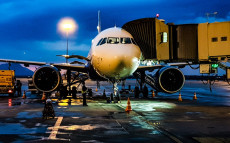- pathfindersAI
- Job Profile
Airline Pilots, Copilots, and Flight Engineers
Summary
Career Overview: Airline Pilots, Copilots, and Flight Engineers
Airline Pilots, Copilots, and Flight Engineers are vital components of the aviation industry, ensuring that air travel is safe, efficient, and comfortable for passengers and cargo alike. This essay explores the multifaceted nature of these careers, delving into their core responsibilities, the essential skills required, educational pathways, career prospects, and concludes with an assessment of their significance in today's world.
What They Do
Airline Pilots, Copilots, and Flight Engineers are responsible for operating and navigating aircraft to transport passengers and cargo across local, national, and international routes. Pilots, particularly captains, have the ultimate authority and responsibility for the aircraft. They conduct pre-flight checks, monitor weather conditions, and ensure that all systems are functioning correctly before and during the flight. Copilots, or first officers, assist the captain by managing communications with air traffic control, monitoring instruments, and taking control of the aircraft when necessary.
Flight Engineers, although a less common role in modern aviation due to advances in technology, are still crucial in some operations. They monitor and maintain aircraft systems, perform troubleshooting, and ensure optimal flight performance by managing engine power and fuel consumption. Their presence is more typical in older or specialized aircraft models.
Job Responsibilities
Airline Pilots, Copilots, and Flight Engineers have a broad spectrum of responsibilities that ensure safe and effective air travel. They include navigating aircraft from takeoff to landing, managing critical flight systems, and responding to emergencies. Daily tasks often start with a detailed pre-flight briefing, which involves assessing the flight plan, weather conditions, and any potential hazards.
During the flight, pilots and copilots maintain communications with air traffic control, adjust flight paths as necessary, and make split-second decisions to ensure passenger safety. They monitor instrumentation for any signs of malfunctions and take corrective actions if needed. In the case of Flight Engineers, responsibilities also extend to overseeing aircraft performance, managing fuel resources, and conducting regular system checks to prevent issues from arising during the flight.
Essential Skills
To become a successful Airline Pilot, Copilot, or Flight Engineer, several core competencies are essential. Chief among them is exceptional situational awareness, which allows pilots and engineers to perceive and understand their environment in real-time and make informed decisions. Strong analytical and problem-solving skills are necessary for troubleshooting technical issues and adapting to changing conditions.
Clear communication is another critical skill, ensuring seamless interaction between the cockpit crew, cabin crew, and air traffic control. Physical and mental stamina are also required as pilots and engineers may face long hours and the stress of safeguarding numerous lives. Additionally, a solid understanding of aeronautical principles, meteorology, and navigation is crucial for performing their duties effectively.
Educational Pathways
The journey to becoming an Airline Pilot, Copilot, or Flight Engineer typically begins with obtaining a high school diploma or equivalent, followed by a Bachelor's degree in fields such as aviation, aeronautical engineering, or related disciplines. Prospective pilots must then complete extensive flight training, which involves obtaining a private pilot license (PPL), followed by a commercial pilot license (CPL) and, eventually, an airline transport pilot (ATP) certificate.
Flight engineers may require a more specific path, including an associate or bachelor's degree in engineering or aviation technology, coupled with certification and rigorous training for the particular aircraft they will manage. Continuous education and training are vital in these careers, requiring regular re-certification and skills updates.
Career Prospects
The career prospects for Airline Pilots, Copilots, and Flight Engineers are generally favorable, with growth buoyed by expanding global air travel and the need for skilled professionals to replace retiring workers. Opportunities are plentiful with commercial airlines, cargo carriers, and private jet operators. Job stability is further reinforced by the ongoing demand for air travel and advancements in aviation technology.
Salaries in these professions can be lucrative, reflecting the high level of responsibility and expertise required. The Bureau of Labor Statistics projects a steady growth rate for airline pilots, co-pilots, and flight engineers, mirroring the increasing reliance on air travel for both personal and commercial purposes.
Conclusion
In summary, careers as Airline Pilots, Copilots, and Flight Engineers offer a dynamic and rewarding path for individuals fascinated by aviation. These roles are integral to the safe and efficient operation of aircraft worldwide. They require a blend of technical knowledge, critical soft skills, and rigorous training. With robust career prospects and the promise of a stimulating work environment, these professions continue to attract those seeking excitement and responsibility in the skies. As technology and air travel continue to evolve, the importance of these careers remains undiminished, underscoring their essential role in modern society.
Video
Compensation
| State | Median Salary | Median Hourly | Positions |
|---|---|---|---|
| OK | 124,760 | * | 170 |
| AL | * | * | 260 |
| AK | * | * | 1,100 |
| AZ | 196,020 | * | 2,150 |
| AR | 159,310 | * | 380 |
| CA | # | * | 9,140 |
| CO | 166,170 | * | 5,490 |
| CT | 128,110 | * | 40 |
| FL | # | * | 7,130 |
| IL | # | * | 7,820 |
| IN | * | * | 760 |
| IA | 134,910 | * | 80 |
| KS | 119,890 | * | 70 |
| LA | 94,760 | * | 190 |
| MI | # | * | 2,550 |
| MS | 118,370 | * | 160 |
| MO | 138,920 | * | 90 |
| MT | 46,710 | * | 160 |
| NE | 120,000 | * | 90 |
| NV | 191,310 | * | 1,630 |
| NJ | 171,300 | * | 3,220 |
| NM | 123,530 | * | 80 |
| NY | 231,830 | * | 7,240 |
| OH | 224,100 | * | 650 |
| PA | * | * | 3,820 |
| SC | 114,150 | * | 90 |
| TN | 134,850 | * | 260 |
| TX | 233,910 | * | 7,800 |
| VA | 214,930 | * | 3,230 |
| WA | # | * | 3,670 |
| WI | 78,850 | * | 130 |
| WY | 102,720 | * | 40 |
Similar Occupations
In this area you will find other occupations that are close to the one you were viewing in tasks, knowledge and work environment. If the primary job profile you are viewing isn't quite to your liking, take a look around and see what else is available.
Basic and Premium Accounts have more alternative occupations available than the Free account.

Aircraft Cargo Handling Supervisors - 53-1041.00
Aircraft Cargo Handling Supervisors oversee the loading, unloading, and securement of cargo on aircraft, ensuring adherence to weight and balance specifications and safety protocols. They coordinate with ground crew and logistics personnel to optimize efficiency and compliance with aviation regulations.
-
$58,920/yr
Median Pay -
9,020
Number of Jobs

Aircraft Mechanics and Service Technicians - 49-3011.00
Aircraft Mechanics and Service Technicians are responsible for diagnosing, repairing, and maintaining the structural, mechanical, and electronic systems of airplanes and helicopters to ensure they operate safely and efficiently. They perform routine inspections, troubleshoot issues, and replace or repair components to meet stringent safety standards and regulatory requirements.
-
$75,020/yr
Median Pay -
137,630
Number of Jobs